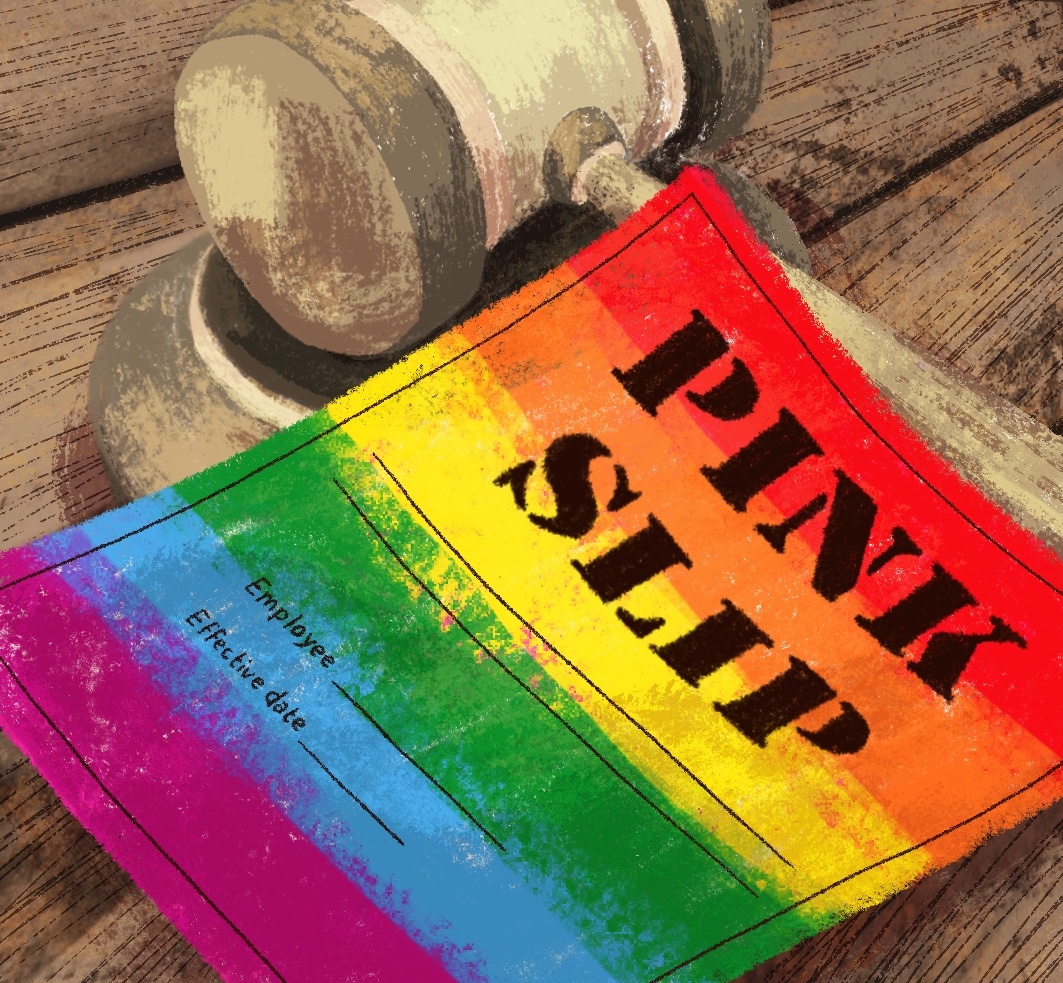Chronicle FYI: Supreme Court takes on LGBTQ+ workplace rights
October 17, 2019

Editor’s Note: Chronicle FYI is part of the Chronicle’s new, ongoing series breaking down complex, emerging issues of the day.
On Oct. 8, the Supreme Court heard arguments on three cases that all revolved around one question: Does Title VII of the Civil Rights Act of 1964—which prohibits discrimination in the workplace on the basis of sex—encompass the prohibition of discrimination based on sexual orientation and gender identity?
Two of the three cases the Supreme Court heard on this issue, from Gerald Bostock and Don Zarda, were combined as both Bostock and Zarda are gay men who were fired after coming out. The third case involved a transgender woman, Aimee Stephens, who was fired after she informed her employer of her intention to start openly expressing her true gender identity.
These cases will not be decided for months, but the far-reaching implications of the potential decision by the Supreme Court could affect more than just the LGBTQ+ community.
With a 5–4 divide between conservative and liberal justices, respectively, the deciding judge currently seems to be Justice Neil Gorsuch. Gorsuch said the text of Title VII was “close” after hearing arguments from David Cole, the national legal director of the American Civil Liberties Union, who was arguing on behalf of Stephens.
Cole argued that Title VII already protects members of the LGBTQ+ community. He cited a 1989 Supreme Court case, Price Waterhouse v. Hopkins, in which an accountant, Ann Hopkins, was fired from Price Waterhouse for being “too butch,” according to an Oct. 9, 2019, New Yorker article. Hopkins won and the Court ruled that workplaces requiring employees to adhere to gender stereotypes constitutes as gender discrimination.
The way Stephens was treated by her employer was no different than the way Price Waterhouse treated Hopkins, Cole said. Stephens was fired for expressing her gender as a woman simply because she was assigned male at birth, he argued, and therefore her termination was rooted in the same expectations for gender presentation that Hopkins’ were. Lower courts also ruled in Stephens’ favor because of this reasoning, as well as in Zarda’s case, and said he would not have been fired if he were a woman attracted to men—indicating that sex discrimination was also behind his termination.
Ed Yohnka, director of communications and public policy for the ACLU of Illinois, agreed with this argument. Title VII does not need to specifically identify protections for LGBTQ+ people because these types of discrimination are already encompassed within it, he said.
Yohnka said that regardless of the Supreme Court’s decision, Illinois will be unaffected because of the Illinois Human Rights Act, which explicitly protects members of the LGBTQ+ community who work in an Illinois workplace, regardless of their state of residence.
However, for states without protections, Yohnka said a decision not in favor of the plaintiffs could put a burden on state activists to quickly pass state-based laws.
Alternatively, The Equality Act—a bill which passed the House of Representatives in May and has since been sitting in the Senate—would provide protections based on “sex, sexual orientation and gender identity” on a federal level, regardless of the Supreme Court’s decision.
The Equality Act was a popular topic of discussion at CNN and the Human Rights Campaign’s Town Hall Oct. 10, as reported Oct. 11 by the Chronicle.
Most Democratic presidential candidates support the bill, but in April, Senate Majority Leader Mitch McConnell (R-Ky.) called himself “the grim reaper” for legislation coming from the Democratic House.
Several conservative justices said making the decision to explicitly include LGBTQ+ workers in Title VII would be better handled by Congress. Justice Samuel Alito said the Supreme Court would be “acting exactly like a legislature” if they ruled in favor of this application of the text. Even Gorsuch, who said he was “with” Cole on the text of Title VII, said he was concerned about the “massive social upheaval” the decision could have.
Yohnka said, depending on how the decision is written, it could potentially overturn the decision of Price Waterhouse v. Hopkins, which would impact more than just the LGBTQ+ community.
“I think one of the concerns would be that you might see again the rebooting or the reapplication of sex stereotypes in the workplace in a fashion that we have thought were part of a bygone era,” he said. “If you aren’t feminine enough, if you don’t walk the right way, if you don’t dress the right way, those things could be used against you adversely in your employment. … I don’t think the Court is going to do that, but it’s a disturbing prospect.”
Yohnka said that whether or not this ripple effect happens, threatening the rights of any still threatens the rights of all.
“The truth is that rights are not part of a package,” he said. “I don’t get one from Column A and one from Column B and one from Column C. I think we should always think of rights as being part of a quilt. The more people who are covered, the more protections we have for ourselves.”







